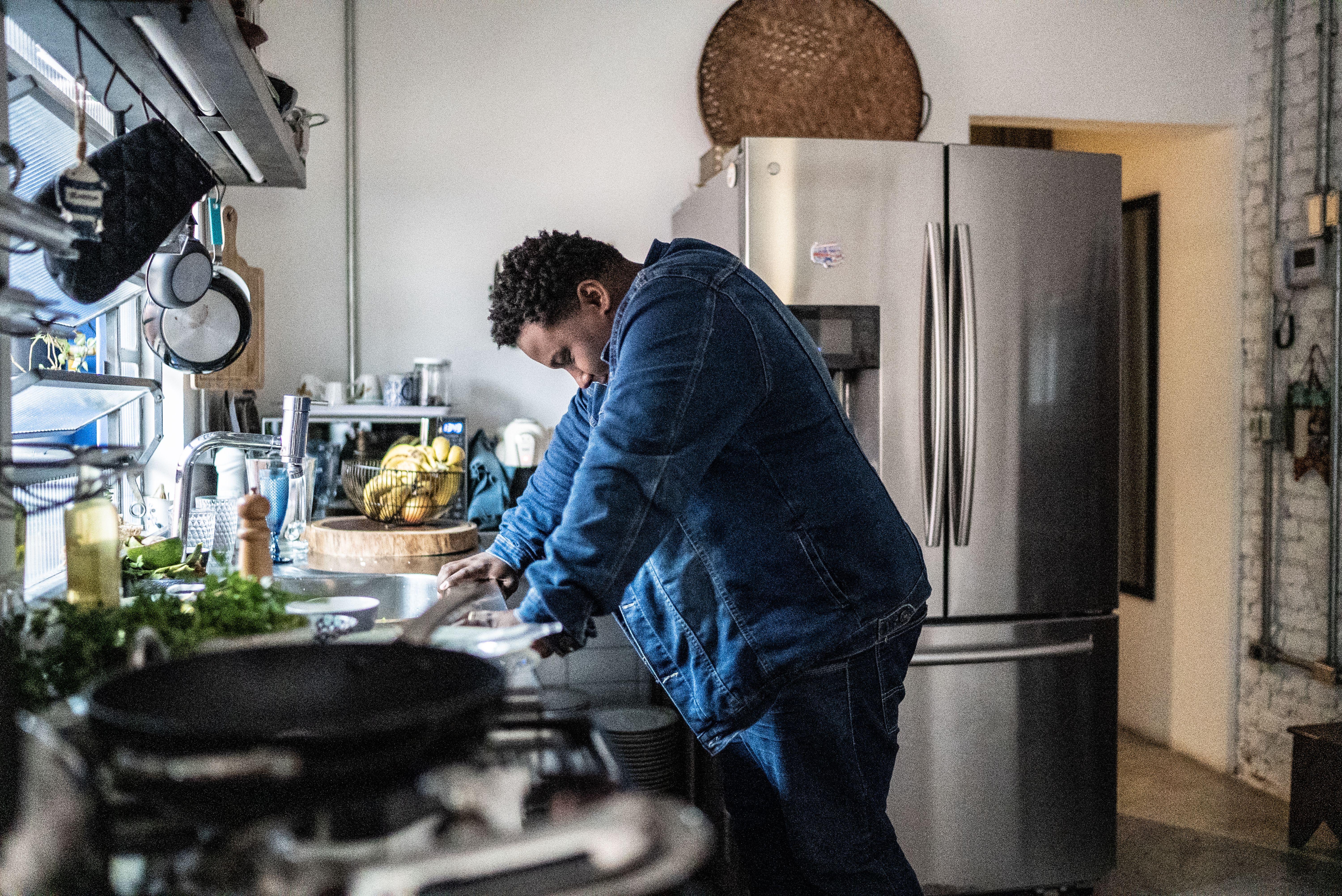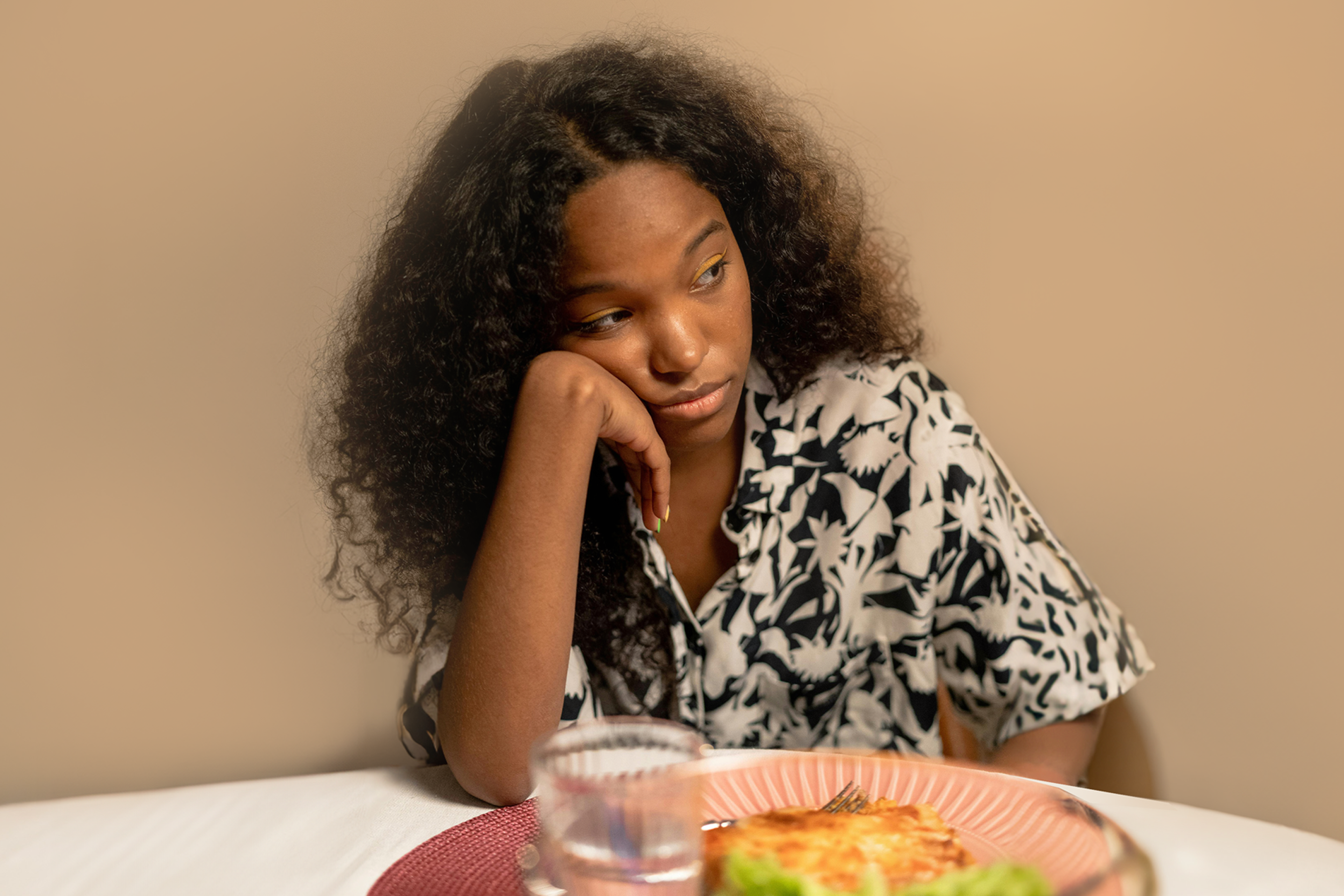


When Equip Lead Peer Mentor Makailah (Mak) Dowell was struggling with binge eating, she turned to food for the sense of comfort and safety it provided. But while she found instant solace during each binge episode (the term for eating a large amount of food at one time while feeling out of control), any initial positive sensations were immediately replaced with fear and shame. Like many who have experienced binges, Dowell—who was diagnosed with binge eating disorder (BED) and bulimia—was left in distress once the food was gone, not knowing what to do after binge eating.
Often, Dowell felt the need to “compensate” for her behavior or “fix” the damage she had done, which is a common feeling after binge eating. “The ‘fixes’ had to be instant,” she says. “I would purge constantly and that’s how I was diagnosed with bulimia: my dentist saw my sudden tooth decay and knew something was wrong.” In addition to purging, Dowell’s other “fixes” included self-harm, excessive exercise, and continuous self-criticism. “I figured I had to show myself that I could never, ever do it again,” she says. “It would be this constant cycle of ‘everything’s fine, binge, response, self-hatred, a lot of time passing, then everything’s fine again.’ Then the cycle repeated itself. It is exhausting, ruthless, and no one comes out unscathed.”
As Dowell and eating disorder experts can attest, attempting to “fix” a binge through compensatory behaviors like purging, overexercise, restriction, and more, will never actually “fix” the issue at all. In fact, engaging in these behaviors just compounds and perpetuates a harmful cycle. Read on to learn more about binge eating, why it happens, and what to do after binge eating that will actually help you.
What exactly is a binge?
A binge is defined as an episode in which someone eats a large amount of food in a short amount of time—past fullness and often to the point of physical discomfort—while feeling a lack of control over what or how much they’re eating. Some people experience this as feeling like a "food obsession." Binges can look different from person to person, but are almost always followed by intense feelings of guilt, shame, or other distressing emotions. And while binge eating is a common symptom of serious eating disorders like bulimia and BED, it can also occur outside the context of a diagnosable illness.
“As an eating disorder dietitian, I’ve worked with countless people who have struggled with binge eating in the past,” says Equip Clinical Partnerships Representative and registered dietitian Christina Fattore, MS, RDN. “One common misconception about binge eating is that it only occurs in the context of bulimia or BED, which I’ve found is often not the case. Anyone who struggles to maintain a healthy relationship with food or deprives their body of necessary nutrients is at risk for engaging in binge behavior.”
The reasons why people binge and how they feel after the binge also vary. “We don’t live in a black-and-white world and the same thing applies to the binge-restrict cycle,” Dowell says. “Some binges might ‘feel good’ and fulfill an emotional need, while other binges feel like a complete spiral from the eye of the storm. Binges might de-escalate what is happening within yourself.”
Fattore says that one of the most difficult things for many people to reconcile is the shame they associate with binge behavior in contrast to the cultural glorification of restriction (especially since the two are intrinsically linked). “I find that patients struggling with binge eating are often told to behave in a way that directly exacerbates the behavior—whether that be through dieting, cutting out certain food groups, or engaging in excessive physical activity,” she says. “Unfortunately, I’ve also found that these patients often struggle to seek help, likely due in part to the above. Until we stop pathologizing what can largely be viewed as a normal biological response to restriction, I think we will continue to see a significant number of people who struggle with binge eating.”
What to do after binge eating
Because of the overwhelming shame many people feel following a binge, it’s understandable why you might be tempted to turn to compensatory behaviors like dieting or overexercising to “counter” the effects of the binge. But tempting as they may seem in the short-term, these methods aren’t helpful: they don’t address the root cause of binge eating, and they usually set you up to binge again.
“One of the mistakes I most commonly see is an attempt to compensate for binge behavior via restriction or excessive amounts of physical activity,” Fattore says. “This perpetuates an ongoing cycle of undernourishment and increased hunger cues that sets the stage for another binge episode to occur. By depriving the body of necessary nutrients in the aftermath of a binge, we subject ourselves to experience a desire for food far beyond what can ever be satisfied by ‘normal’ eating.”
So then, what should you do after binge eating? Thankfully, there are constructive alternatives to the compensatory behaviors that tend to reinforce disordered eating habits. If you struggle with binge eating, try some of these actionable, recovery-supporting steps the next time you’re left wondering what to do after a binge:
Reach out for support. “Call you friends, your recovery buddies, your aunt; call someone who encourages you and your chosen values,” Dowell says. “Every time I made that phone call, I would be brought back to reality. There is life outside of this binge episode, my people still love me, and I will be okay and I still honor my values.”
Go for a gentle walk. “Engaging in mindful movement after a binge episode can not only help us mentally reset, but also encourages increased gastric emptying and GI motility, both of which can decrease physical discomfort and bloating after a binge,” Fattore says. As the physical discomfort abates, the mental and emotional discomfort also tends to lessen.
Nourish your body, no matter what. “Have food after!” Dowell says. “I cannot stress this enough: do not react by not eating. Restricting makes your body and mental health feel much worse after the binge. Continue with your day with the same meals and snacks you would have normally. Remind yourself you are worthy to take space, nourish yourself, and be gentle.”
Give yourself grace. Remember that binges are a natural evolutionary reaction to restriction, not a lack of willpower (more on that below). “The binge itself had nothing to do with personal failings and everything to do with biology,” Fattore says. “Your body is doing what it can to keep you safe—thank it for that.”
Get as much rest as you can. “I cannot explain how exhausting and emotionally draining a binge can be,” Dowell says. “You may not have even enjoyed the food, you probably worried the whole time beforehand, and afterward is an exhausting experience itself. Curl up with your favorite book or TV show and rest. Let your body heal with sleep. Usually, I would feel so much better even after a few hours of rest.”
Seek help. If you’re experiencing recurrent episodes of binge eating, you may be struggling with an eating disorder like BED or bulimia. Eating disorders are serious mental illnesses, and not something that you can fix on your own through sheer will or by just deciding to stop. Talk with your doctor or reach out to our team to get a professional assessment and the support and resources you need to heal.

Why binge eating is not an issue of willpower
As Fattore points out, and as research shows, most binges are preceded by a period of restriction. “It’s important to recognize that binge behavior often results from a very normal biological response to ongoing restriction rather than a lack of willpower,” Fattore says. “As human beings, our brains have evolved to employ protective mechanisms that ensure our physical safety and physiological stability.”
Any time humans restrict their food intake—regardless of whether it’s due to famine, food insecurity, guilt, or a strict diet—the brain’s hypothalamus attempts to remedy the situation by signaling for increased production of ghrelin (the “hunger hormone”), and decreased secretion of insulin and leptin (the hormones that make us feel full). “When this occurs, there’s very little we can do to fight against our own biology,” Fattore says. “In this way, binge eating is our body’s attempt to keep us safe and return to a state of metabolic homeostasis.”
Fattore points to studies indicating that not only do dieting and restriction increase risk for binge eating, even in people who don’t have a history of disordered eating, but they have also been shown to prolong binge eating episodes, especially in those who may be struggling with bulimia or BED. “We can safely assume, then, that binge eating truly has nothing to do with willpower,” she says. “It’s a learned evolutionary response to a dangerous physiological state: undernourishment.”
Having experienced the destructive cycle firsthand, Dowell can attest that attempting to “fix” the problem through “discipline” or self-punishment will only make things worse. “You cannot ‘will’ yourself out of a binge,” she says. “You’re facing a huge problem, and that is your eating disorder. I remember that I used to believe that it was my lack of willpower that was why I would ‘binge’ and be ‘bad.’ I was never bad. My eating disorder was bad and bad to me. And there is no such thing as will with an eating disorder. You need and deserve help to stop.”
What you choose to do after a binge can make a big difference in whether you binge again, but often it can feel impossible to make those healthier choices on your own.

- Goode, Rachel W et al. “Binge eating and binge-eating disorder in Black women: A systematic review.” The International journal of eating disorders vol. 53,4 (2020): 491-507. doi:10.1002/eat.23217
- Bray, Brenna et al. “Clinical aspects of binge eating disorder: A cross-sectional mixed-methods study of binge eating disorder experts' perspectives.” Frontiers in psychiatry vol. 13 1087165. 14 Feb. 2023, doi:10.3389/fpsyt.2022.1087165
- Pasiakos, S.M., Caruso, C.M., Kellogg, M.D., Kramer, F.M. and Lieberman, H.R. (2011), Appetite and Endocrine Regulators of Energy Balance After 2 Days of Energy Restriction: Insulin, Leptin, Ghrelin, and DHEA-S. Obesity, 19: 1124-1130. https://doi.org/10.1038/oby.2010.316
- Mathes, Wendy Foulds et al. “The biology of binge eating.” Appetite vol. 52,3 (2009): 545-553. doi:10.1016/j.appet.2009.03.005







